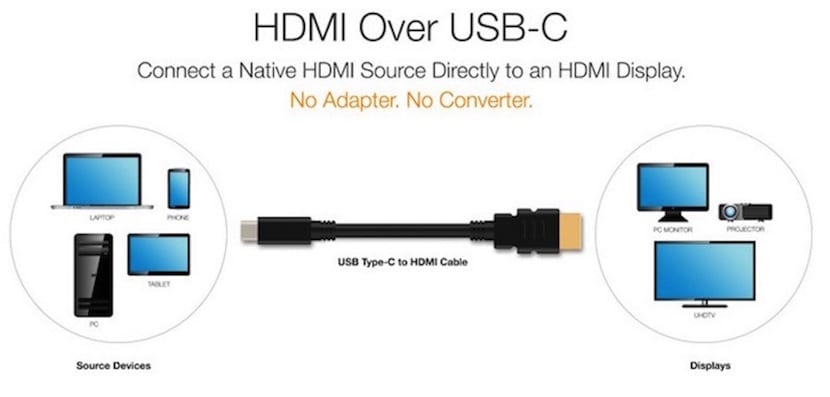
Intel is one of the main drivers of technology USB-C even preparing, as they have announced, a new audio standard with which supposedly they will stop using devices equipped with a 3.5 mm jack as well as a new video standard with which to achieve greater productivity in people. Now this technology could have received a new impulse after the publication of the new standard published by the HDMI Licensing.
For those who do not know, HDMI Licensing is the body in charge of dictating the rules within the HDMI. With this in mind let's move on to the newly released standard known as'HDMI AltMode'which literally opens the doors to manufacturing HDMI to USB-C cables, an important advance that will end the need to acquire all those kinds of adapters manufactured by third parties.
HDMI Licensing gives new impetus to USB-C technology
As has been published, thanks to this new standard, literally any USB-C device, such as tablets, cameras, smartphones, computers ... can connect directly to an HDMI port present for example on a screen, monitor or projector to send video and audio signals just by using a certified cable that will bring the certainty that it is compatible with a wide range of devices.
The objective of this standard lies in the need that manufacturers today have to incorporate HDMI Type C ports known as Mini HDMI or HDMI Type D or Micro HDMI into different devices, and above all the use of different cables for each of them. they. With the release of this standard, it will be possible to make use of the typical and famous HDMI Type A, in turn the best known, making all tablets, smartphones and other equipment just add a USB-C port.
Further information: HDMI